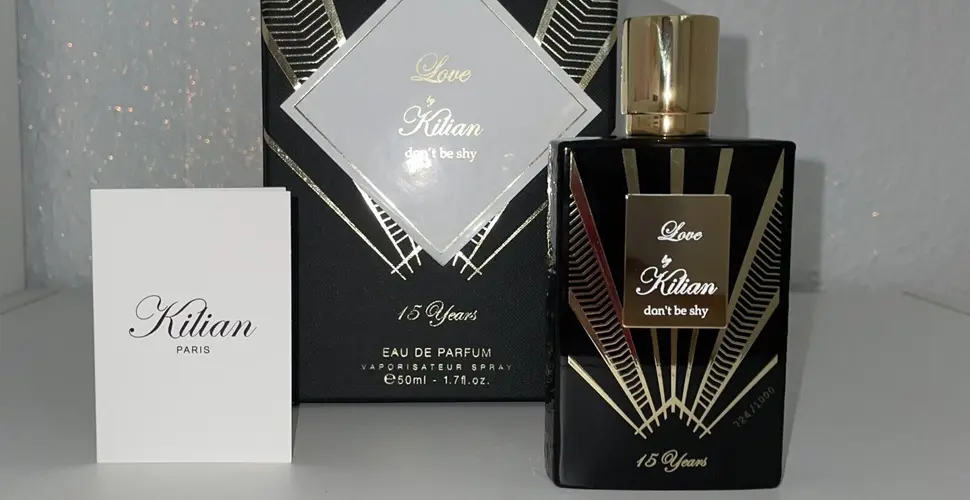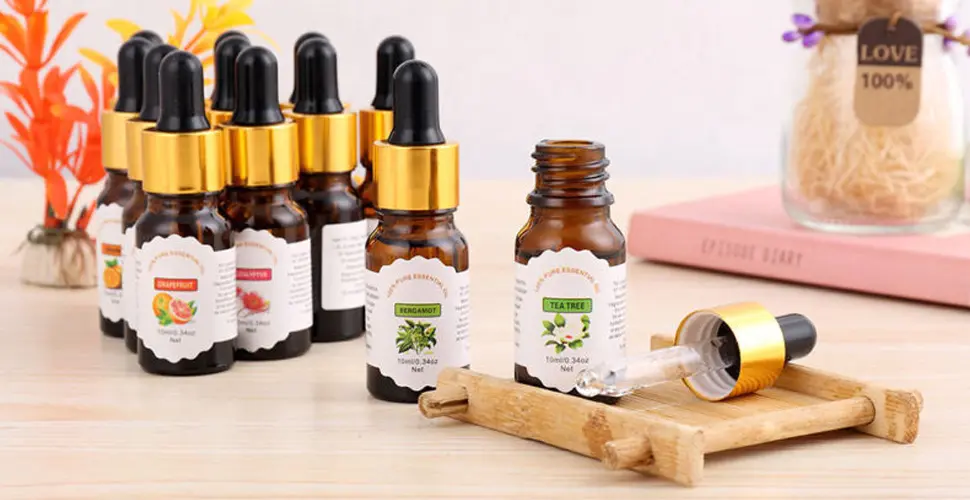The Best Fragrance Ingredients for Sensitive Skin
Deana Stallings
- 04 Jan 2023

The Best Fragrance Ingredients for Sensitive Skin
Introduction
Who doesn’t enjoy the feeling of a luxurious fragrance that lingers on your skin? But for those with sensitive skin, choosing the right fragrance ingredients is key to making sure you don’t break out in hives!
Ever heard the saying “less is more”? The same applies to your sensitive skin a fragrance with a few key ingredients can offer more than enough aroma to soothe and tantalize your senses. As renowned French perfumer Jean-Paul Guerlain says, “A woman’s perfume tells more about her than her handwriting.” But when it comes to sensitive skin, it’s important to choose wisely to make sure you look and feel your best.
What are the best fragrance ingredients for sensitive skin? The key is to avoid overwhelming your skin with harsh chemicals. Natural ingredients like coconut oil, lavender, and witch hazel are ideal for soothing the skin and delivering just enough fragrance to tantalize! Alternatively, you can select fragrance-free products that are specifically formulated for sensitive skin.
A refreshing new approach to making your fragrance last longer? Look for products that have the ability to mix with the oil on your skin for a longer-lasting duration. Your perfume will be wonderfully unique and tailored to your skin type - perfect for those with sensitive skin!
So let’s put Jean-Paul Guerlain’s words into practice, and let your fragrance shine - while avoiding irritation to your sensitive skin. Ready to learn more? Visit our blog post and find the perfect fragrance ingredients for your sensitive skin!
Fragrance ingredients for Sensitive Skin
If you’re looking for an effective and safe way to fragrance your favorite products without causing skin irritation, it’s important to think carefully about the ingredients you use. After all, nobody wants to subject their skin to anything that might cause damage or unfavorable reactions. Luckily, there are tons of options out there when it comes to fragrance ingredients that are safe for sensitive skin!
When choosing the right ingredients, it’s crucial to think about the specific needs of your skin first and foremost. Fragrance is a personal choice, and so it’s up to you to decide which ones are best for you! Do you want to go all-natural, or are you in search of a more robust scent? Once you’ve narrowed it down, it will be much easier to make the right decision for your sensitive skin.
To avoid causing potential irritation, it’s important to avoid perfume oils that contain synthetic ingredients such as propylene glycol, phthalates, and any synthetic colors. Fragrances can also contain preservatives like parabens, which can cause negative skin reactions.
On the other hand, there are plenty of gentle and natural fragrance ingredients that are perfect for sensitive skin! Essential oils are a great option; they come in a multitude of fragrances and provide nourishing, moisturizing benefits to your skin. Natural waxes, like beeswax and soy wax, provide a pleasant and soothing scent without the risk of irritating your skin.
Essential oils are the way to go for a safe and personalized fragrance. Not only do they provide a unique custom scent, but they can also provide additional health benefits - depending on which essential oil you choose! Whether you’re looking for something soothing, relaxing, invigorating, or anything else, you’re sure to find something to match your needs.
Remember: when it comes to choosing fragrance ingredients for your sensitive skin, it’s all about making informed decisions and being aware of the potential dangers of synthetic ingredients. With the right research and ingredients, you’ll be able to find the perfect fragrance solution for your skin type - you just have to be a bit more picky!
Understanding Sensitive Skin
What Exactly is Sensitive Skin?
Ah, sensitive skin… the bane of my existence. It’s enough to make anyone reach for the nearest oversized bottle of aloe vera! If this phrase causes anxiety to rise up in you, then you’re not alone - because it turns out sensitive skin isn’t just a figure of speech.
So what exactly is sensitive skin? Well, it turns out sensitive skin is exactly what it sounds like: skin that is itchy, irritated, or red with the slightest of contact. The good news is that it’s usually a short-lived affliction (phew!).
Common Symptoms
You know when it’s time to change up your skincare routine when you see any or all of the following common symptoms on your skin:
Pimples - Not the cool kind that come from eating pizza and sleeping too late. The annoying kind that come from touching your skin too much.
Redness - Because red is the only color that really stands out!
Tightness - When your skin feels like it’s in a vice. (Hey, I can relate.)
Itching - Itch, scratch, repeat.
Burning - Like your skin is on fire!
The Causes of Sensitive Skin
So why does sensitive skin show up at the worst possible time? Well, there’s a few culprits behind this irritating condition:
Weather - Humidity, cold temperatures, and wind can all lead to skin irritation.
Environmental Factors - Too much sun or exposure to pollutants can contribute to skin problems.
Fragrance Ingredients - Fragrances added to skincare products can act as irritants, so they’re best avoided if you have sensitive skin.
Why Avoid Fragrances?
Fragrances contain ultra-tiny particles that act as allergens, which means when you apply fragranced skincare products, those allergens can seep through your skin barrier and enter your body. Then the body sees these allergens as foreign and mounts a response by attacking them. That’s why you may experience redness, itching, and other uncomfortable symptoms.
Not all fragrances are bad - as a matter of fact, some fragrances can be beneficial for your overall skin health. However, for those who have sensitive skin, it’s best to avoid fragranced skincare products.
Having sensitive skin can be annoying and downright painful, but understanding the causes and common symptoms can help you make better skincare decisions in the future.
So don’t let sensitive skin keep you from making the most out of your skincare routine. With the right products and a few simple lifestyle changes, you can keep your skin healthy and looking its best.
The Best Fragrance Ingredients for Sensitive Skin
Aromatherapy is a great way to add a boost of relaxation and sensuality to your life - but for those with sensitive skin, finding the right fragrances can be tricky. Not all ingredients are created equal, and some may even lead to irritation or a worsening of existing skin problems. To ensure the best outcome, here are five of the best fragrance ingredients for sensitive skin, and where they come from!
Jojoba – Jojoba is a shrub growing in warm climates like Mexico, South America and the US. It has been used for centuries to moisturize and fight blemishes and other skin concerns, and has been known to be non- comedogenic and perfectly gentle on sensitive skin. Jojoba is commonly found in hair and skincare products like lip balms, facial creams, and cuticle oils.
Coconut Oil – Coconut oil is highly fragrant and perfect for those with sensitive skin, as it’s naturally antibacterial, antiviral and antifungal. It can be used for practically anything from a luxurious massage oil to a natural sunscreen. Many products on the market are now made with organic coconut oil, such as body lotions, leave-in conditioners and lip balms.
Lavender Essential Oil – Lavender essential oil is known for its calming and healing properties. It can help to soothe irritated skin while fighting off bacteria and calming redness and swelling. It’s great for use in facial masks, body oils and even facial sprays.
Chamomile Essential Oil – Often used as a sleep aid, chamomile oil is also great for soothing and calming sensitive skin. Its anti-inflammatory properties are great for calming redness and swelling, and it’s often used in skincare products such as body oils, body lotions and face washes.
Honey – Honey has been used in skincare for centuries and has natural antimicrobial and antibacterial properties. It can be used as a gentle exfoliant, moisturizer and skin healer. It can be found in a variety of products such as masks, moisturizers and other skincare treatments.
Now that you know some of the best ingredients for sensitive skin, why not give them a try? Products such as Tea Tree Body Oil, Junior Johnson’s Lavender & Honey Facial Wash and Pure Coconut Milk Body Cream are all great ways to introduce some gentle yet effective fragrances into your skincare routine! So go ahead and treat your sensitive skin to a gentle loving touch!
How to Choose Fragrances for Sensitive Skin
The Importance of Reading Labels and Understanding the Composition of Fragrances
We have all experienced it; the alluring scent of a fragrance that seems to draw us in and make us want more. It’s no secret that fragrances are a widely used and loved tool in our beauty and personal care routine, which is why it is so important to know and understand the composition of a scent before you purchase it. Taking a few moments to read the labels of fragrances can save you a lot of stress, money, and potential skin irritation in the long run. Here are the key elements you need to know in order to make a fully informed choice and get the most out of your scented purchases.
• Difference between “Parfum” and “Fragrance” on ingredients list – The terms “parfum” and “fragrance” on ingredient labels are often the cause of confusion. Parfum is actually a type of fragrance, but it is the purest, longest-lasting version, containing 15-30 percent concentrated aromatic compounds. Fragrance, on the other hand, is composed of a blend of synthetics, which usually results in a shorter lasting scent. “Fragrance” is usually the only listed ingredient on products that contain it, since the exact contents are considered proprietary information.
• Adverse effects of ingredients contained in most fragrances – Many popular fragrances contain a myriad of chemicals which may cause adverse reactions in some people. This is especially true for those with sensitive skin, whose reactions may range from skin irritation to even more serious effects. Ingredients to be wary of include, but are not limited to, synthetic musks, phthalates, and parabens.
• Recommended ingredients for sensitive skin – If you have sensitive skin and you’re looking for a gentler option when buying fragrances, a good place to start is by looking for products containing only naturally derived fragrance ingredients, such as essential oils, absolutes, CO2 extracts and resins.
It’s all about knowing what you’re buying and understanding the composition of fragrances. With all of the products out there, it is important to read labels carefully and pay attention to the ingredients list. That way, your skin will thank you for it! So take a few moments, read the labels, and make the safest, most informed choice when selecting your scents.
Safety and Regulations
When it comes to fragrance ingredients, safety should unquestionably come first. After all, these ingredients can enter the bloodstream when the product is applied to the skin, causing potential harm to those who are especially sensitive. It’s understandably concerning that many of the aroma molecules used in fragranced products are unregulated. This makes it difficult to provide customers with an honest assessment of their safety.
This is why it’s so important to make sure that these scent molecules are regulated by government agencies like the FDA and the EPA. These agencies work to test and verify the safety of these aromatic ingredients primarily looking at issues such as toxicity, stability, and flammability. Through their research, they can determine whether or not a certain molecule is safe for consumers to use.
It’s also essential to do a patch test before using fragranced products. This will involve applying a small amount of the product to a limited surface area—such as your wrist or the crook of your elbow and leaving it on for a few hours to see if you have an adverse reaction. If you have a particularly sensitive skin type, it’s also wise to consult with a dermatologist before using fragranced products. This will give you professional advice tailored to your individual needs.
These concerns underscore why fragranced products should always be approached with care. Even seemingly-innocuous ingredients can cause a reaction in those who are especially sensitive. The good news is that companies are making efforts to ensure that their products are as safe as possible. It’s important to look for warning labels on the packaging and to make sure to adhere to the directions provided.
All in all, it’s important to respect your body when using fragranced products. Make sure to look out for safety concerns, seek advice from professionals if needed, and do a patch test. No one should ever experience an unpleasant reaction if they take the necessary precautions. At the end of the day, it’s always best to err on the side of caution.
Conclusion
There you have it - a comprehensive look at the best ingredients in fragrances for sensitive skin. Now that you know what to look for and use, you can confidently care for your sensitive skin. Remember, even though you may be challenged in finding the right fragrance, some of the most natural scents can offer the same experience.
Start by trying out plant-based products or fragrance-free options to see if they provide the results you are looking for. If you’re having difficulty with skin reactions, be sure to consult with a dermatologist to learn more about the potential causes and find the best treatment option for you.
Finally, don’t let your sensitive skin limit you from enjoying the fragrances you love. With the right ingredients, you can find a product that’s perfect for your skin, allowing you to express yourself with confidence. So be sure to read labels, use the natural scents listed above, and pick cautiously before making a purchase. Your skin will thank you for it!


